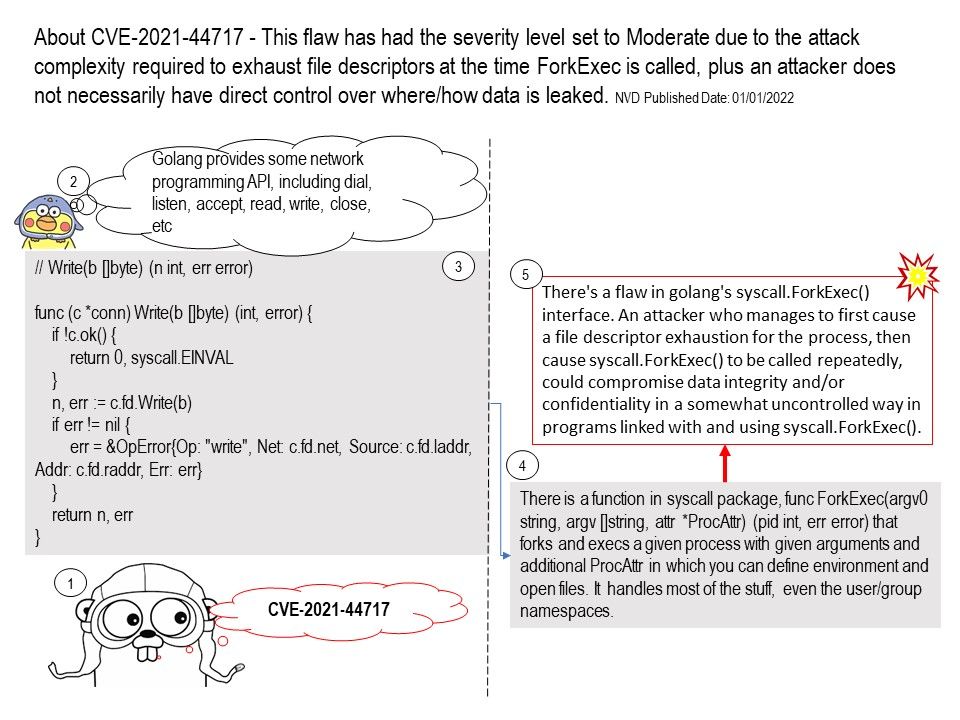
Preface: Golang is useful for carrying out programming for scalable servers and large software systems. The Golang programming language was built to fill in the gaps of C++ and Java that Google came across while working with its servers and distributed systems.
Not limited to Google, well-known cloud businesses such as Dropbox, Terraform, Kubernetes, and Docker also develop applications for the Go programming language.
Go as a language is more similar to C, however in addition to C features, Go offers memory safety, garbage collection, structural typing, and CSP-Style concurrency.
Background: There is a function in syscall package, func ForkExec(argv0 string, argv []string, attr *ProcAttr) (pid int, err error) that forks and execs a given process with given arguments and additional ProcAttr in which you can define environment and open files. It handles most of the stuff, even the user/group namespaces.
Vulnerability details: There’s a flaw in golang’s syscall.ForkExec() interface. An attacker who manages to first cause a file descriptor exhaustion for the process, then cause syscall[.]ForkExec() to be called repeatedly, could compromise data integrity and/or confidentiality in a somewhat uncontrolled way in programs linked with and using syscall[.]ForkExec().
Reference: Fedora has released a security update for golang to fix the vulnerabilities (Affected OS:Fedora 35) – https://bodhi.fedoraproject.org/updates/FEDORA-2021-29943703de